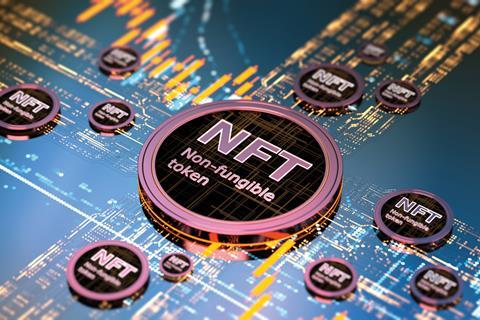Digitisation of court records and the growing importance of managing a digital legacy offer new opportunities for lawyers
The debate around lawyers and generative AI has developed via recent examples of ChatGPT being used in court with disastrous consequences due to its tendency to ‘hallucinate’ – or make things up – and, importantly, people failing to check its output. Two New York lawyers were fined $5,000 for submitting a legal brief with false case citations in a personal injury case against Colombian airline Avianca (the case was subsequently dismissed). When Sky News asked ChatGPT whether it should help write a legal brief it wrote: ‘While I can provide general information and assistance, it is important to note I am an AI language model and not a qualified legal professional.’

This and other examples have highlighted the risks of over-reliance on ChatGPT, the need to ringfence verified information, and the importance of checking outputs. The latest offerings that build in these considerations include Thomson Reuters (which last week acquired US legal AI company Casetext, developer of GPT-4-powered chatbot Co-Counsel); and Lexis Nexis GPT-powered legal research and knowledge management; and other legal tech offerings that support e-discovery and contract analysis. The latest iteration of Travers Smith’s YCN Bot includes ChatGPT integration with enterprise APIs (application programming interfaces) and the ability to track and share prompts. This means you can check the output against the questions you asked. Practice management system Elite, which spun off from Thomson Reuters on 1 June, has introduced generative AI functionality into its invoicing system. This can save firms time by enabling them to autocomplete invoices and billing processes.
Language of law
The digitisation of court records and recordings opens up new opportunities to enhance lawyers’ and others’ ability to access them. Sophie Walker is CEO of transcription company Just: Access. This uses OpenAI’s GPT-3 to link digital recordings of court data to text judgments to improve access to legal information.
In 2020, when courts switched to digital recording, Just: Access looked into using auto-transcription to improve access to legal information. But its initial model only had a 10% accuracy rate, so it applied for an Innovate UK Smart Grant to fund a data science and machine-learning project. ‘We created a custom language model with 3.5 million words from court audio to pick up on the patterns of speech [and vocabulary] that lawyers use in court,’ Walker said.
The next step was to use generative AI to create links between a paragraph of text in a judgment and the relevant audio segment in the recording of the hearing. User group testing revealed that researchers, lawyers and law students were keen to supplement their reading with audio. Barristers and judges wanted to understand how counsel had argued key points; and clients were keen to use video footage to decide which barrister to instruct.
The Just: Access audio/video navigation tool uses natural-language processing and GPT-3 to match the text to the recording combined with a ‘human in the loop’ process whereby the algorithm suggests a link and a law graduate checks and verifies it. This achieves massive time savings over manually creating inks between text judgments and audio files and, importantly, it is scalable.
However, the lack of available (open) data from the courts is a major barrier. The model was built using a small dataset of court audio from the National Archives. All other court video and audio is covered by strong reuse restrictions. ‘In order to build out the model, I have to request data from the National Archives, HMCTS to get the audio from the Court of Appeal and High Court, and the Supreme Court to get their audio,’ explains Walker.
In the US court (audio) recordings are available, and not covered by reuse restrictions. Walker has spent the past eight years trying to work out how to improve access to legal information. ‘The problem isn’t the technology, it’s the data,’ she says, adding that if the government really believes in innovation, it should change the UK data regime. ‘Why should this be a UK product when it would work in America?’
Made in Wales
Last month LawtechUK hosted its second regional event in Cardiff. According to the Legal Innovation Lab Wales report, legal tech in Wales grew 101% between 2017 and 2020 and has seen £130m invested in start-ups and scale-ups. A start-up showcase featured four Welsh lawtechs. Two of these, Credas and Hoowla, are well established scale-ups. Credas and Validient, which work together, focus on facilitating due diligence and compliance checks. While Credas is a scale-up that produces white label applications and has a strong presence in the financial services, legal and property sectors, Validient’s automated client onboarding system was only founded in 2021. Hoowla is a 10-year-old company. Its cloud-based case management system has 1.4 million users. Wyser, which was founded in 2020, uses generative AI to optimise digital transformation and customer experience. The event highlighted Wales’ significant presence at lawtech’s cutting edge.

Digital legacy
As ChatGPT has been the hot topic in legal for over six months, Web3 seemed to take a back seat – until last week when the Law Commission published a report on Digital Assets. This recommended legislation defining a new category of personal property for digital assets such as cryptocurrency and NFTs (non-fungible tokens). Most people have some digital/online assets ranging from cryptocurrencies and NFT art that have monetary value (sometimes significant), to sentimental/personal digital items such as photos, videos and playlists. As digital ownership becomes more important, it raises questions around managing digital legacy.
AssetPass is a software platform for bequeathing and assigning trustees for cryptocurrency keys and NFT wallet addresses, playlists, digital images and recorded messages, as well as tokenised versions of paper wills. All the data is held on a blockchain so is immutable. CEO Paul Rossini explains that the platform handles the legacy and delivery of these assets. Beneficiaries can only access the information via the user’s appointed trustees. AssetPass solves the issue of valuable cryptocurrency and NFTs being lost rather than inherited because their ownership depends on action rather than possession. Nobody except the original owner has the pass keys to access them. AssetPass is available via its website and mobile app and as a white label product for businesses. The app has had around 20,000 downloads and its first commercial contract was with Amazon, which included it in its employee package.
However, there are legal aspects to consider. Charles Kerrigan is a partner at CMS Cameron McKenna Nabarro Olswang specialising in crypto and digital assets. ‘This is a valuable service in principle. Loss of digital assets is a problem that is only going to get worse,’ he says. ‘Digital assets that are simply images or files stored on tech platforms are only assets to the extent that platform terms and conditions make them so. Digital assets like crypto and NFTs are property of the owner, unlike deposits at a bank where they go on to the bank’s balance sheet and the bank owes customers obligations as a debtor. This is one of the big developments that crypto brings as a concept to consumers’ positions – they own something rather than being owed something.’
Tim Ryan, partner and head of TMT at DAC Beachcroft, advises on digital business and ecommerce. ‘Whether it is better to use a solicitor to write a will or use an online wills tool depends on the complexity of your estate and your comfort level with legal matters. One particular consideration should be the availability of recourse when things go wrong,’ he says, referring to crypto transactions being sent to the wrong addresses, or catastrophic IT failures leading to the loss of stored digital legacy.
While there are a number of digital vaults looking to help people pass on digital assets, until the legislation is updated in the light of the Law Commission’s recommendations, it is important to understand whether or not these constitute a valid will. Rossini explains that AssetPass ‘is not involved in the creation of a will; this will always require a lawyer’. The plan is to be able to convert a conventional will into an NFT and pass it to AssetPass to create a digital legacy. However, this will require new legislation.
Ryan flags up the potential issue of competing wills if the tokenised version is not identical to an existing analogue will. ‘The challenge [around] using multiple points of truth/cover will be the potential for conflict: which “wins” in the case of dispute or confusion as to intent,’ he explains.
Rachel Roche of Roche Legal, a solicitor who specialises in estate planning and probate, is becoming increasingly familiar with digital vaults. ‘It will be interesting to see which ones stand the test of time,’ she says. Roche highlights examples such as NotForgotten, which creates personal digital library archives; BePrepared, which provides white-labelled digital asset guardianship software for estate practices; and, in the US, GoodTrust, which creates wills and trusts that include physical and digital assets. While these and others claim to hold digital assets securely in the cloud, the contents of digital vaults are not tokenised and held on a blockchain.
Although the concept of digital legacy has been around for a while, the rapid rate of digital transformation has brought it into sharp focus. It is a developing area of legal technology and hopefully, upcoming legislation will provide clarification and help to bridge the regulatory gaps.































1 Reader's comment